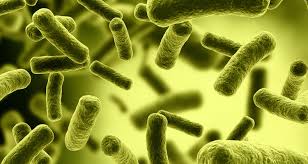Researchers identify the major sources of E. coli breakouts on several beaches on Lake Michigan
07/24/2018 / By RJ Jhonson

The beach may be the hottest destination during the summer, but not so much when it’s infested with Escherichia coli, a bacterium commonly found in feces. Just this year, several beaches in Lake Michigan closed because of E. coli advisories. Scientists from the U.S. Geological Survey (USGS) and Michigan State University looked into the issue and found the culprit – seagulls.
The researchers gathered water samples from Lake Michigan beaches located in Indiana in 2015 and 2016. This area is part of a region that includes the Grand Calumet River and was chosen for a particular reason.
“This was identified as an area of concern in 1987 by the International Joint Commission,” said Meredith Nevers, a research ecologist at the USGS. “The area had a high amount of pollution, as well as a high number of beach closings.”
Nevers explained that the Grand Calumet River is low-gradient, a term used to refer to streams or rivers that flow rather slowly. Because of this, pollution that enters the river tends to stay instead of flowing out into Lake Michigan. Over the years, the area has accumulated plenty of both industrial and municipal waste.
Because E. coli is usually found in poop, the researchers looked for “fecal markers.” These were examined to determine whether they had origins in human, canine, or avian populations. What they found was that gulls were the biggest contributor to the issue. The birds caused the majority of E. coli advisories in all the beaches they studied.
However, this is not to say that gulls are solely to blame for the issue. Among birds, Canada geese and mallard ducks were also top sources of feces with E. coli bacteria. The researchers also found human poop which they attributed to either damage in wastewater treatment plants or overflows that occur in times of too much rain.
In any case, their findings allowed for the establishment of effective measures to control gull populations. Among these are trained dogs that roam beaches from sunrise until seven in the evening. The dog patrols lasted just a month in 2015 but lasted from June until September in 2016.
The measure caused a reduction in gull abundance by up to 100 percent. The number of times per day that the gulls were present in the beaches or close to the area were reduced by up to 93 percent. The sites that implemented the dog patrols saw fewer E. coli problems as a result.
Quick facts about E. coli
Not all strains of E. coli are harmful – in fact, some are found in the human gut as part of the body’s microbiome. This intestinal flora helps protect the body against the impact of bad gut bacteria.
Some strains, such as E. coli O157:H7, produce Shiga, one of the most potent toxins known today. The substance causes intestinal infection, as well as various other symptoms:
- Abdominal pain
- Diarrhea
- Bloody stool
- Nausea
- Vomiting
- Fever
- Fatigue
- Dehydration
In such cases, patients are advised to refrain from taking diarrhea medications as these will only slow down the digestive system and impede recovery. Antibiotics are also best avoided. Instead, one can do the following:
- Drink fluids – Clear fluids like water, clear broth, gelatin, and juices are recommended to prevent dehydration. Apple and pear juices, as well as those that contain alcohol and caffeine, are not advised.
- Eat the right food – Most food items are fine, but it’s best to avoid dairy and fatty products, those that contain a lot of fiber, and those that are highly seasoned as these can worsen the symptoms. It’s best to stick to low-fiber items like rice, eggs, and soda crackers.
- Get plenty of rest – Staying in bed and avoiding physical activities as much as possible is crucial to a quick recovery.
Learn about the importance of keeping water clean at CleanWater.news.
Sources include:
Submit a correction >>
Tagged Under:
bacteria, bacterial infection, birds, contaminated water, E. coli, Escherichia coli, grand calumet river, gulls, Lake Michigan, seagulls, shiga, toxic water, toxins
This article may contain statements that reflect the opinion of the author
RECENT NEWS & ARTICLES
Infections.News is a fact-based public education website published by Infections News Features, LLC.
All content copyright © 2018 by Infections News Features, LLC.
Contact Us with Tips or Corrections
All trademarks, registered trademarks and servicemarks mentioned on this site are the property of their respective owners.





















